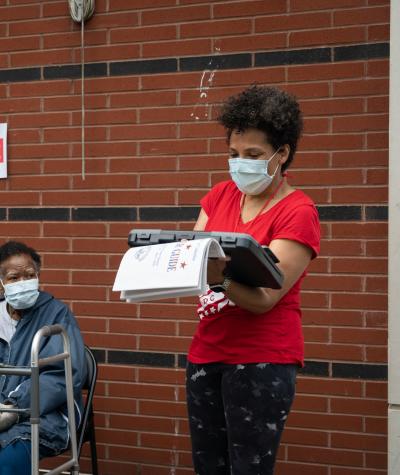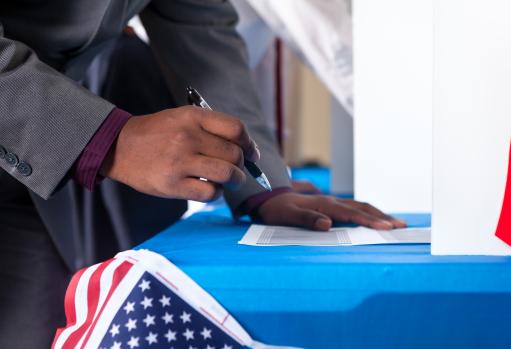Campaign Legal Center (CLC) joined its voting rights partners in celebrating National Poll Worker Recruitment Day on September 1, 2020 to help address the shortage of poll workers in this country.
In the spring of 2020, many poll workers chose not to work because of the risk of contracting COVID-19. The pandemic has only exacerbated the problem that jurisdictions around the country already have with recruiting and retaining enough poll workers to adequately staff elections.
In the 2018 Election Voting and Administration Survey (EAVS), roughly two-thirds of jurisdictions said it was very or somewhat difficult to find enough poll workers.
A disproportionately high number of poll workers tend to be in the same age groups that are most at-risk of having severe illness due to COVID-19. During the 2018 general election, around six-in-ten poll workers were ages 61 and older, including roughly one-in-four who were over 70, according to the Pew Research Center.
To ensure that the 2020 general election is run safely and smoothly, we need a larger group of younger, more diverse poll workers to mitigate the potential for long lines and deep frustration on Election Day.
Despite the COVID-19 pandemic, some communities are still likely to vote in person. Many voters with disabilities, voters with language-assistance needs, and voters without reliable mail service such as Native Americans living on reservations need in-person voting to fully participate in our democracy.
Since coronavirus began spreading in the U.S. in March, CLC has been pushing for the recruitment of a diverse pool of poll workers outside the demographics most at-risk from the virus in an attempt to minimize wait times, shorten lines, and reduce risk for voters and poll workers alike.
Voters should not have to choose between public health and a functional democracy. While the threat faced by this pandemic will continue into the fall, recruiting enough poll workers is key to allowing every eligible voter to vote during the upcoming November election.

